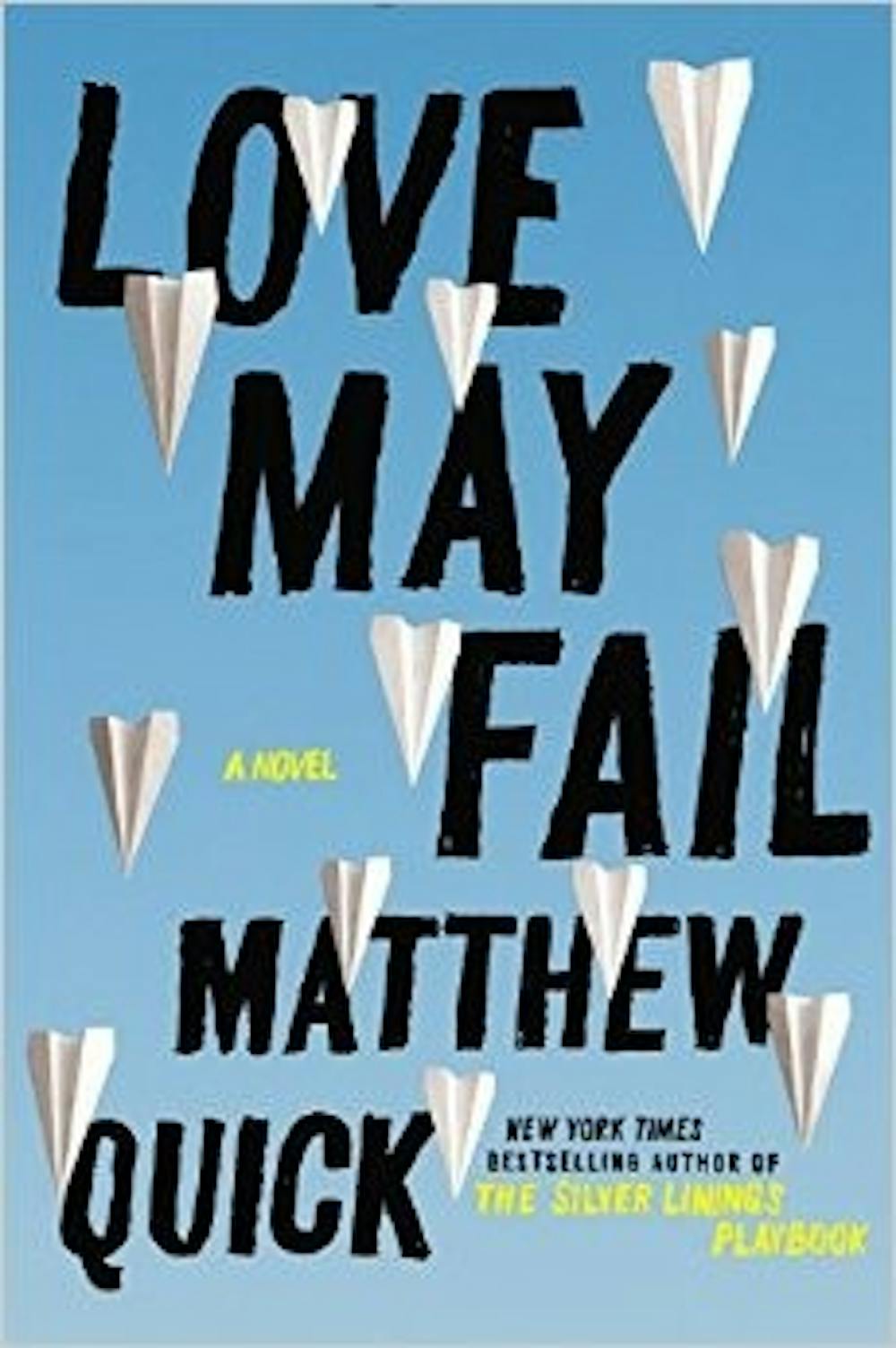3.5 stars
In the spirit of total honesty and journalistic transparency, this review is influenced by the Q&A that I did with Matthew Quick last week.
As a member of the Arts/Arts & Culture/Arts & Entertainment/Arts & Stuff desk for six semesters now, I’ve conducted my fair share of interviews with people who create really, really cool things. Q&As, while always entertaining and usually enjoyable, can tend to be somewhat formulaic — like anything, you get what you put into it, but no amount of preparation can simulate a natural connection between two people.
Hopefully without sounding too presumptuous, I felt that connection with Matthew Quick. Quick was one of the most honest, open people that I’ve interviewed, which is no easy feat, especially when talking to a journalist about potentially sensitive topics such as mental health or the balance of joy and sadness needed in life. His honesty and generous demeanor was refreshing, brave and touching, and I respected him all the more for it.
It was because of our talk that I saw this part of him in his book, “Love May Fail,” which I was in the midst of reading when I interviewed him. While the title of the book sounds ominous, the book is anything but.
True to his repertoire, Quick wrote about some seriously heavy topics: depression to the point of suicide, drug addiction, death, failed dreams and broken families. He also balanced it with moments of joy that only ’80s hair metal, familial bonding and true love can provide.
Above all else, “Love May Fail” is about hope. It’s about getting up and trying again, even after failing so many times before. It’s about learning how to handle heartbreak in order to find love again. And it’s about believing that what’s around the corner is worth fighting for.
While this sentiment is not unique to Quick, the way that he writes this story makes this an incredibly powerful message. Let’s be real: a lot of messed up stuff happens to the characters in this novel. Arguably, all of the characters, aside from the nuns, are dealing with mental illness in some form: depression, addiction, hoarding, etc. It’s the way that these characters are written — quirky, funny, mundane, even — that makes them relatable, and that's incredibly important when writing characters who deal with mental illness.
The ability to deal with mental illness is certainly an aspect of a person’s personality, but it’s not the entire story of any one person. Quick gets that, and that’s part of what made this novel so good. When dealing with trauma, sometimes people get stuck — it’s that in between space between hurt and healed that Quick explores in “Love May Fail,” and he does it well.
The novel starts with Portia Kane, an aspiring feminist who catches her pornographer-husband cheating on her with a teenager. Moving back to her hometown in South Jersey, she reunites with high school classmates in search of a former high school English teacher who was a driving force in her life. Finding that he no longer teaches and is severely depressed, she goes on a mission to inspire him like he inspired her so many years ago. A story told through the viewpoints of four characters — the hopeful Portia Kane; the former English teacher, Mr. Vernon; the nun Portia serendipitously meets on her plane back to New Jersey; and the ex-heroin addict, Chuck Bass — the characters weave in and out of each others’ lives, creating a sense of unity.
That sense of unity is amplified in recurring motifs such as ’80s hair metal, which brings together the characters as well as the reader — we all love ’80s rock, which Quick smartly used to amplify a bigger point. The characters are quirky yet sincere and, most importantly, always interconnected, and therefore never alone — the most hopeful sentiment of all.
The only reason why I gave “Love May Fail” only 3.5 stars is because the plot does move slowly sometimes. The timeline is a bit hard to follow and seemingly inconsistent, as the book does span over multiple years. However, that doesn’t detract entirely too much from the book as it’s primarily character driven, and rightfully so.
“Love May Fail” is honest and brave and utterly hopeful. I use these words a lot in my reviews, but that’s because I think these are key aspects to successful works of art, and “Love May Fail” is no exception. With bright characters and a fierce thirst for redemption, Quick’s latest novel is well worth a read.
As I noticed in our Q&A, Quick has a knack for telling the truth in a way that's both generous and raw. It's that sense of sincerity that remained with me while I was reading this book.
Love may fail, but Quick did not.
Disclaimer: An advanced copy was sent through Flyleaf Books for reviewing purposes. Neither The Daily Tar Heel nor the writer was compensated for this review.
To get the day's news and headlines in your inbox each morning, sign up for our email newsletters.




